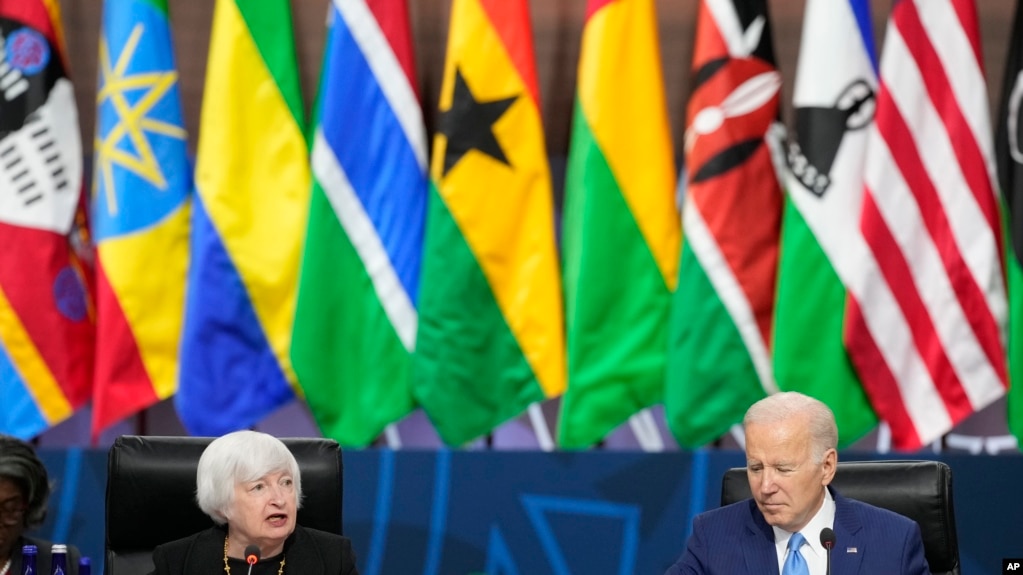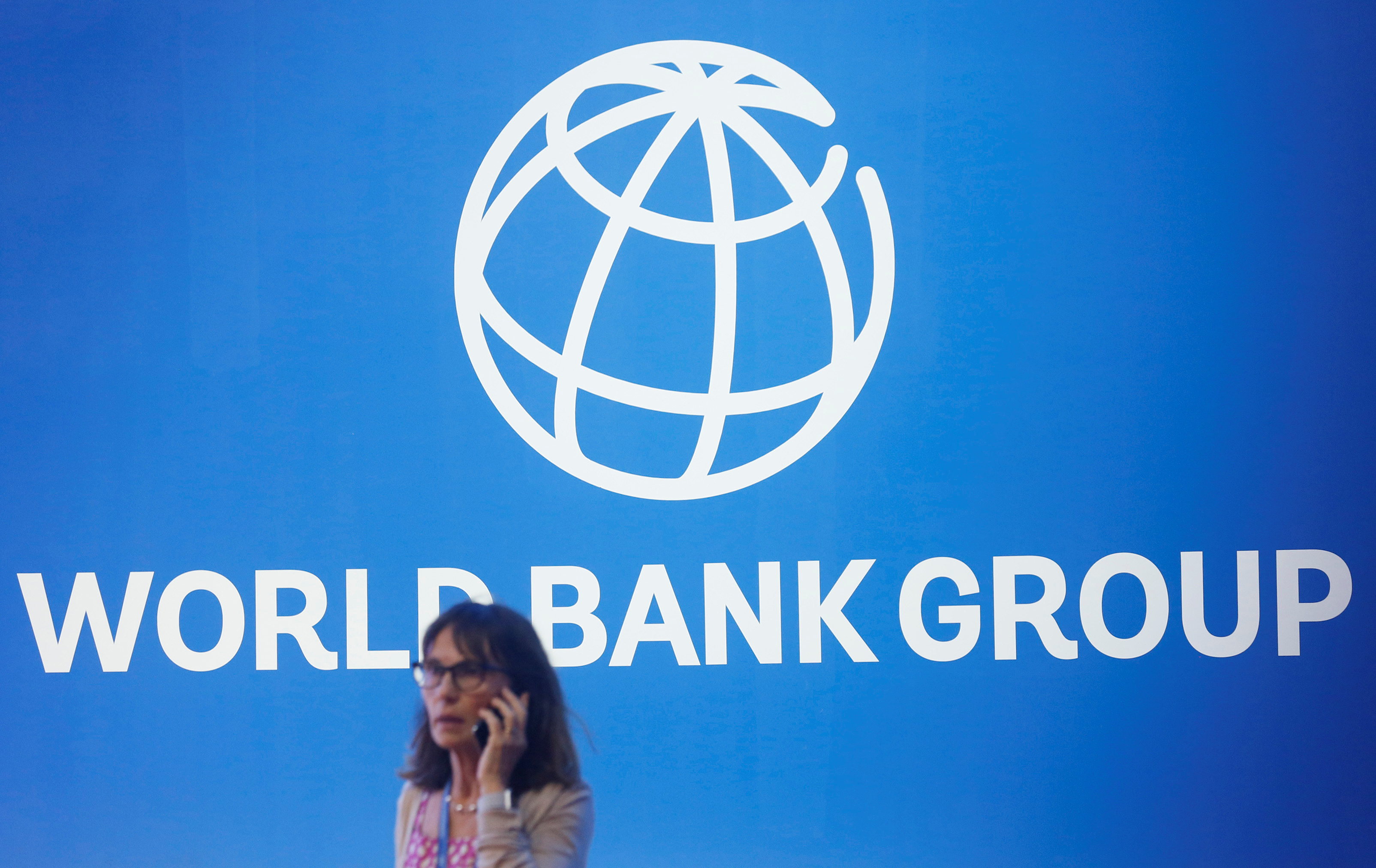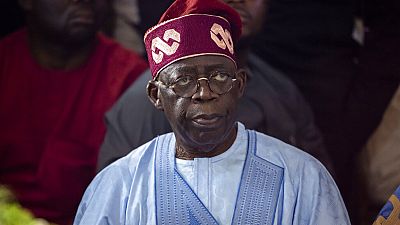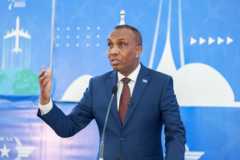
US President Joe Biden listens as Treasury Secretary Janet Yellen, left, speaks during the closing session at the U.S.-Africa Leaders Summit on promoting food security and food systems resilience in Washington, Dec. 15, 2022.
The United States has struck hundreds of deals worth $14.2 billion with African nations over the past year as Washington tries to counter growing influence on the continent by China.
The 547 new trade and investment agreements represent a 67% increase from 2022 in the number and value of closed deals, according to British Robinson, coordinator for the Prosper Africa trade and business initiative, a program that connects U.S. and African businesses.
Robinson said the presidential and national security initiative is aimed at strengthening strategic and economic partnerships by mobilizing two-way trade and investment flow, and young people are key to realizing that goal.
“The U.S. business and investment community is increasingly recognizing Africa’s extraordinary market potential and dynamism. The continent is home to the world’s youngest population, an asset that creates significant opportunities for viable business deals that create jobs and foster shared prosperity,” Robinson said during a December 12 virtual media briefing.
Judd Devermont, U.S. National Security Council senior director for African Affairs, said it has been a record-setting year for U.S.-Africa relations, with the United States following through on its commitment to invest some $55 billion over three years.
“As we wind down 2023, we have already delivered on more than 40% of this commitment. In fact, by the end of year two, we anticipate surpassing 70% of our goal, if not more,” Devermont said. “With these resources, we’ve expanded our trade and investment; we have advanced major food and health security partnerships; charted a course for digital transformation; forged new security and good governance cooperation; and catalyzed landmark diaspora-driven engagement.”
The briefing was held to mark the one-year anniversary of the U.S.-Africa Leaders Summit in Washington, where Biden pledged to go “all in” on the continent.
The announcement comes as Washington works to deepen its engagement with Africa, where China has been expanding its influence with infrastructure, investment, loans, among other initiatives.
Devermont, President Joe Biden’s top Africa adviser, said Africa is not only important economically but politically, adding the U.S. has been pushing for more African voices on the world stage for some time.
“President Biden last year called for the African Union to become a permanent member of the G20, and in September we proudly welcomed this development,” Devermont said. “We’re now advocating for a third seat for the —for Sub-Saharan Africa on the IMF board, and of course we reiterate our call for permanent representation for Africa at the UN Security Council.”
The U.S. has had to alter its investment and trade strategies in countries affected by conflict. U.S. Department of State Bureau of African Affairs Principal Deputy Assistant Secretary of State Jonathan Pratt said that, in Sudan, U.S. policy has been to put sanctions in place. “Sanctions haven’t just been on individuals; they’ve also been on companies and different asset classes. And so that’s one strategy that we’ve used in conflict countries and locations,” he said.
Pratt said in Niger, one of several countries hit by military coups and violence, the United States is prioritizing peace through negotiations.
“We’ve been very supporting of the ECOWAS (Economic Community of West African States) sanctions that have been put in place. And then to support that effort we have leveraged our own assistance and investments, which we’ve announced very clearly, if the country and the leadership there turns back to a democratic path, we’re willing to explore progressively lifting that freeze in assistance and potential investments,” Pratt said, adding that the U.S. also uses “a combination of sanctions plus leveraging our engagement and assistance.”
Devermont agreed saying that trade investment has been an important part of the U.S.-Africa Leaders Summit.
“One of the most important initiatives that has come out of the continent in the last couple years has been the Africa free – Continental Free Trade Area. And we signed an MOU with the AfCFTA at this summit because the goals of the AfCFTA to unite 1.3 billion people in a single market and to trade a nominal GDP that’s larger than India’s is a huge boon. And in that process, harmonizing regulations, reducing trade and non-trade barriers, that will benefit all countries whether they are experiencing a crisis or not.”
Devermont said the U.S. is also looking at the underlying drivers of conflict, and is investing in new approaches, including elevating its focus on elections and anti-corruption measures.
Source: VOA, 14th December 2023
 afric-Invest
afric-Invest

